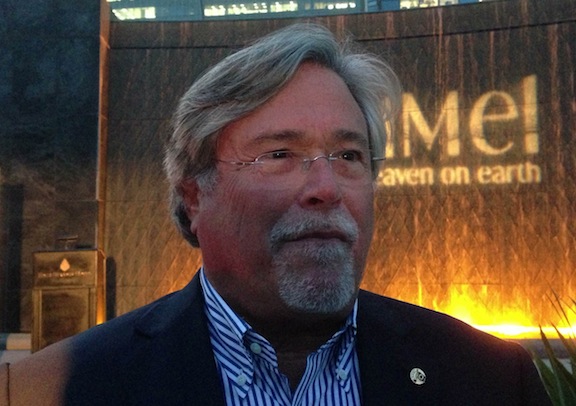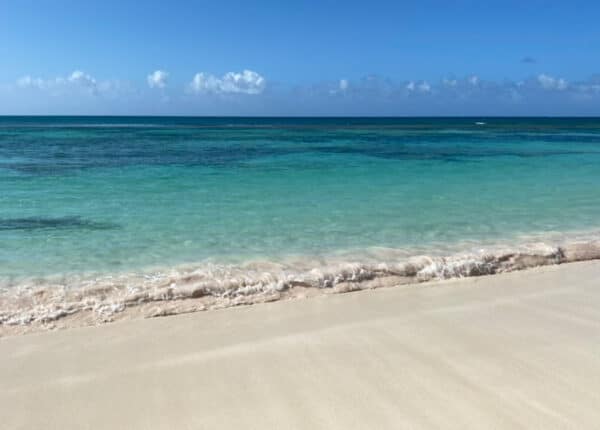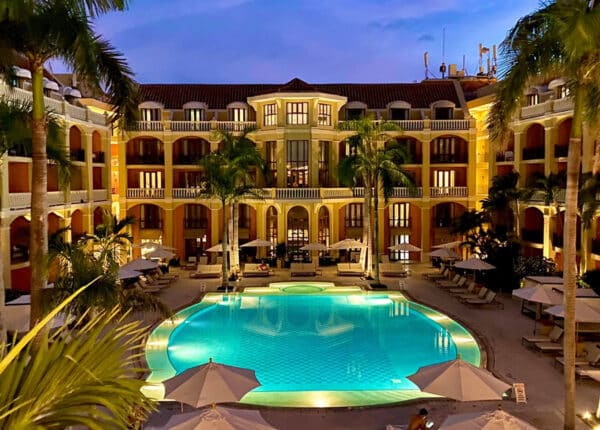Interview With Micky Arison, Chairman of Carnival Corporation
Above: Micky Arison (CJ Photo)
By Alexander Britell
MIAMI — Cruise tourism accounts for more than $2 billion a year to the Caribbean region, and no one knows more about it than Carnival Corporation Chairman Micky Arison (who also owns the Miami Heat). To learn more about Arison’s thoughts on the state of the Caribbean cruise industry, Caribbean Journal caught up with Arison at a Mexico Tourism Board event at the Four Seasons Hotel in Miami.
How would you describe the state of the Caribbean cruise industry today?
It’s definitely growing. For the first time in a long time, I think [the industry’s] numbers are going to be up a bit for [this year]. So it’s definitely a positive sign for the Caribbean region as far as cruising is concerned.
Are there any niche areas or particular destinations where you see growth?
Mexico is growing, and the Bahamas is growing, but I think it’s been pretty widespread. It’s obviously more toward the northern part [of the Caribbean] because of fuel conservation issues. But honestly, Curacao and Aruba must be up as well, so I think it’s pretty broad.
What are the biggest challenges facing the Caribbean cruise industry?
Well, there are obviously a lot of economic issues in the Caribbean that are not necessarily industry-related, but are related to the general economic situation around the world, and the difficulty governments are having in raising money. And that obviously is going to impact us. But there are clearly lots of issues — that’s why we have the Florida-Caribbean Cruise Association, why we have [FCCA President Michele Paige], who works with the governments on these issues. It’s an ever-growing challenge, because the numbers of passengers are bigger, the ships are bigger and the challenges are bigger.
It’s an ever-growing challenge, because the numbers of passengers are bigger, the ships are bigger and the challenges are bigger.”
How is the relationship between the industry and Caribbean governments — is the impact of cruise tourism appreciated enough within the region?
I think, for the most part, the answer to that is yes. Far more so than 10 or 20 years ago. But it varies government to government obviously, and country to country. But I think, generally speaking, yes, it is far more recognized today than it was 10 years ago.
How can that awareness grow further?
Obviously FCCA has a great deal to do with it. The industry is growing, and just showing them — communicating. I think the conferences have been great doing that, getting people together, and so you can share best practices and areas that have done very well can communicate those things.
So I think communication is probably the most important thing.
What do you think will be biggest trends for the Caribbean cruise sector in the future?
There are going to continue to be challenges. One of the reasons the Caribbean is so much stronger is because there’s been a pullback from Europe because of the economic situation in the European Union, especially Southern Europe. It’s a global marketplace.I think the biggest challenge is how much Asia starts to draw away. On the other hand, you’ve got companies that are really aggressive in expanding and building ships, so you’ve got the combination of that going on. But 20 years ago, it was a North American-centric industry, and now it’s a global industry. So the Caribbean has to compete in a global marketplace, and I think that’s a challenge that’s relatively new recently.








